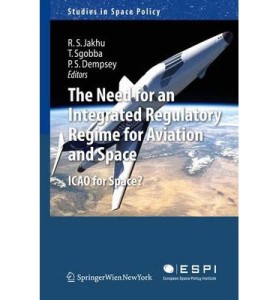To ensure that momentum of innovation and development of space transportation is not hindered, Dr. Olumuyiwa Benard Aliu, President of the ICAO Council, has declared that states, international organizations and other stakeholders should work together to ensure that regulations and policies necessary to support space transportation are in place in due time and to include the schedule for these provisions in the 2019 revisions of the ICAO Global Aviation Safety and Air Navigation Plans.
ICAO/UNOOSA AeroSpace Symposium that is taking place today in Abu Dhabi. “The commercial space sector has made significant progress, and this year we will have the opportunity to begin addressing some important specifics.,” he said. “ICAO recognizes that sub-orbital and outer space flights will foster new tourism and transport markets and that investments in related research and development remain at a very healthy level Personally, as an engineer, I am very excited to see the dream and theory of normalized space flight now becoming such a tangible reality.”

The need for an integrated regulatory regime for aviation and space.
The number of airframes that have been completed, or that are nearing completion, continues to grow. Likewise, there has been a steady increase in launches, and commercial spaceports are now becoming operational realities. This accelerating innovation requires the adaptation of the existing regulatory framework, for which ICAO and national governments are responsible. “If we do not find a way to embrace the important changes that aerospace innovators are generating, national requirements will not be harmonized, technology will be over- or under-regulated, and there will be more operational and commercial uncertainties,” Dr. Aliu explained. “This is exactly what needs to be avoided, and as we have amongst us today some world-leading entrepreneurs, academics and regulators, I am sure that good progress will be made.” ICAO has taken a very proactive strategy to ensure that aerospace capacity grows with progress in the industry, to prepare for global standards, and to ensure regulation is relevant, flexible and a facilitator of development. “We need to prepare ourselves for global international aerospace standards and regulations,” Dr. Aliu said. “First and foremost these will need to be fully integrated with the many thousands we have adopted up until now in civil aviation. This is how we help to assure the safety and security of the skies we all need to share. In line with a wider evolution in ICAO in recent years, the standards to be developed are expected to be performance-based rather than prescriptive, so that they encourage rather than hinder innovation.”
The organization of the symposium itself, in conjunction with UNOOSA, is a concrete outcome of ICAO’s strategy. “Who will write these standards?” Dr. Aliu asked the participants, underscoring that ICAO has learned over its long and successful history that knowledge and experience are the key to effective regulation. “That is why we have come together here today. The ICAO-UNOOSA events are unique in that they provide our respective sectors with a means to jointly prepare for the challenges and thrills of the next generation of flight,” he explained.
The ICAO/UNOOSA Symposium is the second of its kind, is a concrete outcome of ICAO’s strategy. Building on work that was achieved at the first event that took place in Montréal in 2015, it brings together leading business, regulatory and academic figures from the space and civil aviation fields.
Source: ICAO

















































































































![A trajectory analysis that used a computational fluid dynamics approach to determine the likely position and velocity histories of the foam (Credits: NASA Ref [1] p61).](https://www.spacesafetymagazine.com/wp-content/uploads/2014/05/fluid-dynamics-trajectory-analysis-50x50.jpg)



Leave a Reply